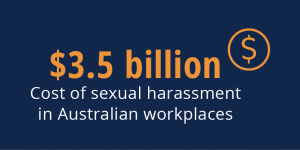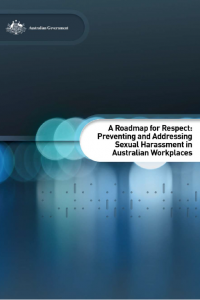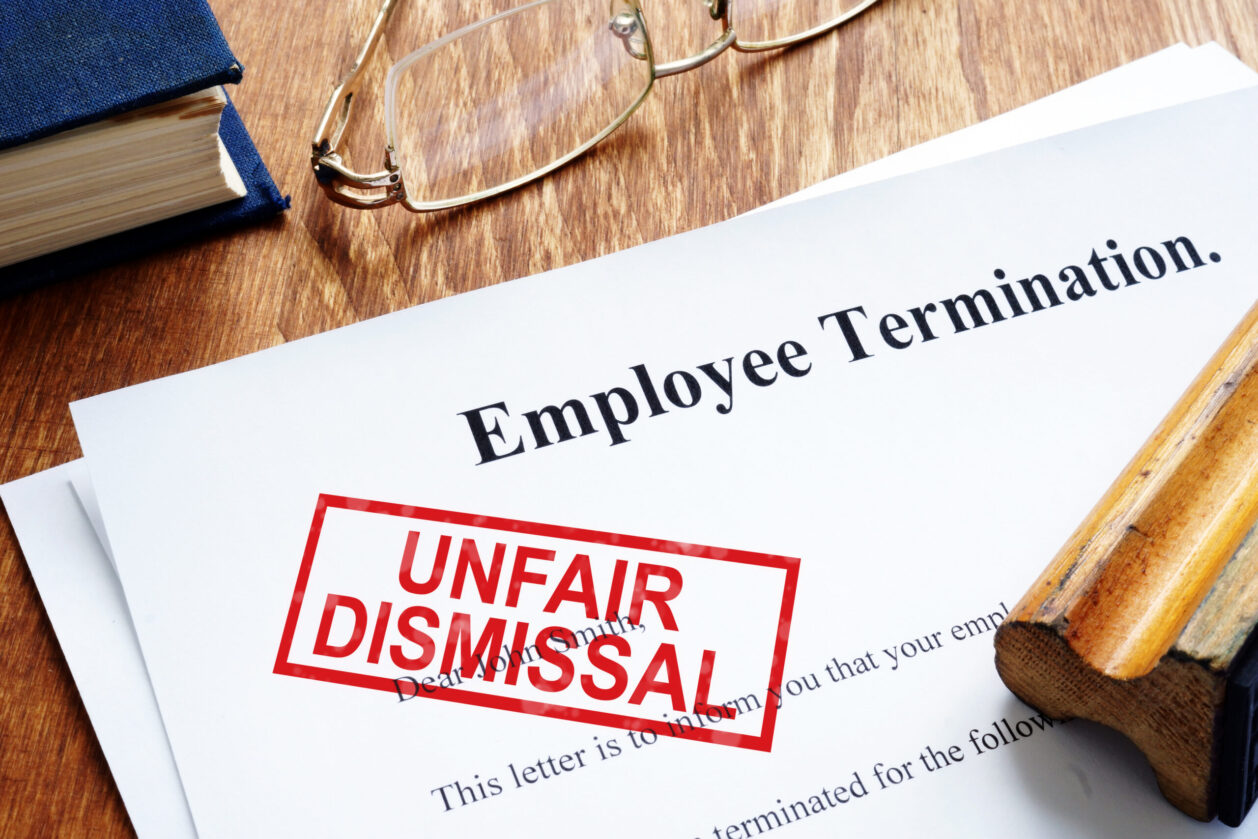The Federal Government's Roadmap for Respect proposes a raft of reforms aimed at preventing sexual harassment as part of a wider cultural shift on the issue.
Employers play an important role in this shift and have a chance to work with the Government on the implementation of the roadmap.
What is the Roadmap for Respect?
The Roadmap for Respect is the Federal Government’s response to Sex Discrimination Commissioner Kate Jenkins’ Respect@Work report into workplace sexual harassment, released in March last year.
Respect@Work estimated the cost of sexual harassment in Australian workplaces at $3.5 billion a year in 2018, with Commissioner Jenkins describing the issue as endemic.
The Government's roadmap is aimed at improving the culture of Australian workplaces to prevent and address sexual harassment.
What has been announced?
On April 8, 2021, Prime Minister Scott Morrison outlined several proposed changes to the Fair Work Act as part of the roadmap that will:
- include sexual harassment in the definition serious misconduct;
- confirm it as grounds for termination; and
- clarify the existing right to terminate an employee for sexual misconduct, where their actions justify termination.
Under the proposed changes, businesses still need to comply with the requirements for procedural fairness.
The amendments will also allow the Fair Work Commission (FWC) to issue orders to stop sexual harassment in the same way it does for bullying complaints.
This would allow the FWC to issue a direction requiring parties to do, or not do, certain activities aimed at preventing the behaviour from occurring again.
The amendments also intend to extend the timeframe for victims of sexual harassment to lodge a complaint under the Human Rights Act from six months to two years, recognising that for some victims of sexual harassment six months is insufficient time to lodge a complaint.
The roadmap also seeks to extend the scope of the Sex Discrimination Act to make Members of Parliament and judges liable for sexual harassment complaints. This brings them in line with the obligations that already exist for the private sector.
Why is the Government reforming sexual harassment laws now?
A number of high-profile sexual assault and harassment claims have come to light in recent months, highlighting the need for strong policies around the issue.
The Respect@Work report followed Commissioner Jenkins' national inquiry into sexual harassment in Australian workplaces.
 At the time the report was launched, Women's Minister Marise Payne said "Government will carefully consider the report and its 55 recommendations", noting that it raised "some quite complex issues across various legal and regulatory frameworks".
At the time the report was launched, Women's Minister Marise Payne said "Government will carefully consider the report and its 55 recommendations", noting that it raised "some quite complex issues across various legal and regulatory frameworks".
The Government has since announced $2.1 million in the Federal Budget to establish a Respect@Work Council.
The roadmap is a formal response to all 55 recommendations in the report.
What was detailed in the roadmap?
In the Roadmap for Respect, the Federal Government has agreed, in full, in-principle, or in-part with all 55 recommendations outlined in the Respect@Work report.
It is based on the following principles:
- Everyone has a right to be safe at work.
- Policy should be evidence-based.
- Prevention must be the focus.
- Simplicity and clarity makes the law easier for Australians to understand and access.
- Laws must be consistent with broader legal frameworks and fundamental legal principles.
The report notes the Sex Discrimination Commissioner’s observation that “the duplication, conflicting definitions and concepts and unclear pathways for resolution that currently exist create challenges for dealing with matters of this kind when they arise”.
It adds, “clear obligations and consistent tests in as few places as possible ensures employers and employees know the applicable standards and can avoid harm".
The roadmap outlines a plan for governments to work with employers and industry groups to implement changes to workplace culture.
What else is the Federal Government doing?
A national women’s safety summit, taking place in September 2021, will help shape a new plan to reduce violence against women.
The Federal and state governments will use the event to formulate a replacement to the National Plan to Reduce Violence Against Women.
For advice on developing a sexual harassment policy or handling a complaint, contact CCIWA’s Employee Relations Advice Centre on (08) 9365 7660 or email [email protected].







